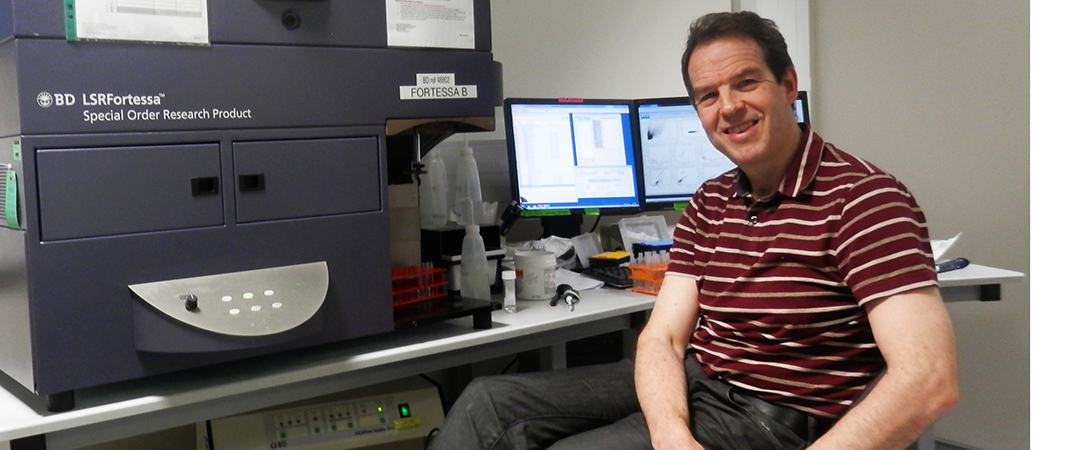
Researchers at the Royal Free Hospital have discovered that new memory T cells, which are a vital part of the immune system, are being produced by the body all the time.
The research, carried out by scientists at the UCL Institute of Immunity and Transplantation (IIT) and the University of Glasgow, increases our understanding of how vaccines work and the capacity of the immune system to cope with numerous vaccinations at once.
The immune system is made up of a variety of different cells which each have a role to play in fighting infection. When the body fights off an infection, memory T cells are produced which specifically remember that infection. If the same virus or bacteria gets into the body, these memory cells can quickly respond to prevent the infection taking hold.
The cells work by coordinating an immune response and recruiting other immune cells to destroy the bacteria or viruses. The same things happen when someone is given a vaccine – memory cells are produced which means the body can quickly respond to a real life infection, keeping the person free from disease.
The next question for us is to answer is whether memory cells are also frequently being made in humans.
Until now, scientists were not sure whether the memory cells are produced just once and remain in the body for the rest of a person’s life, or whether new memory cells are continually produced during a person’s life.
The study, which has been led by Dr Benedict Seddon at the IIT and Professor Andrew Yates at Glasgow, reveals that new memory cells are being produced all the time. “The question we were asking was how long do the memory cells survive and how often new ones are made,” said Dr Seddon. “Are they only made when you have an infection or are given vaccination or are new ones made more frequently?”
By tagging cells which were newly produced, the researchers were able to establish that at least 10% of memory cells were replaced with new ones each week. Dr Seddon added: “We established that producing memory cells is just a normal process within the immune system, that it is dealing with new things all the time. This suggests that the body is used to reacting to many different things at once and therefore having several vaccines at once is not as unusual or overwhelming a situation for the immune system as one might first think. However, finding out that new memory cells are made all the time throughout life may help explain why vaccine boosters are such an important ‘reminder’ to ensure we continue to be protected from serious diseases.
“We carried this out this research in mice – we know that mice and humans, like all mammals, have immune systems which work in very similar ways. The next question for us is to answer is whether memory cells are also frequently being made in humans.”
This research paper has been published in the science journal eLife and commentary about the paper can be found here.
Ends
Image: Dr Benedict Seddon, with a flow cytometer, which enables him and his research team to analyse cells.
Notes to editors
About the Royal Free London NHS Foundation Trust
The Royal Free began as a pioneering organisation and continues to play a leading role in the care of patients. Our mission is to provide world class expertise and local care. In the 21st century, the Royal Free London continues to lead improvements in healthcare.
The Royal Free London attracts patients from across the country and beyond to its specialist services in liver and kidney transplantation, haemophilia, renal care, HIV, infectious diseases, plastic surgery, immunology, Parkinson's disease, vascular surgery, cardiology, amyloidosis and scleroderma and we are a member of the academic health science partnership UCLPartners.
In July 2014 Barnet Hospital and Chase Farm Hospital became part of the Royal Free London. Read 'A bigger trust, a better future'.
 Translate
Translate